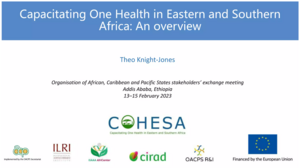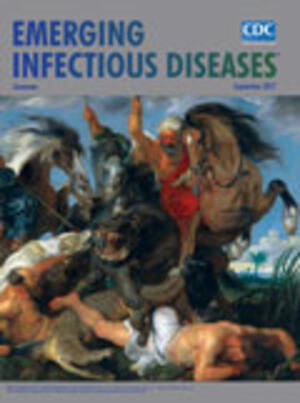
Antimicrobial use in African agriculture and its implications
Abstract
In developing countries, antimicrobial resistance (AMR) is commonly found in pathogens isolated
from animals, animal food products and agro-food environments. The AMR infections in animals
of most potential risk to human health are likely to be zoonotic foodborne pathogens. We present
a review of antimicrobial use and surveillance in east African agriculture along recent case studies
from free-range pig systems in Uganda; dairy in Kenya, and pastoral small ruminant systems in
Ethiopia. We discuss how differing systems are associated with differing patterns of AMR.
Although the lack of comprehensive surveillance systems means there are few reliable data AM
use in animals, current evidence suggests that, in east Africa, agricultural may exceed medical
use; most use is probably in intensive production systems; and, agricultural use is increasing
rapidly. For example, veterinary use in Kenya may have increased from around 15 tons in the year
2000 to over 5,000 tons in 2016 while medical use has been more stable at around 200 tons a
year. Medical use is comparable to developed countries while veterinary use is much higher.
The issue of AMR in developing countries is complex. Livestock may be the sources or the victims
of AMR, or both. While many countries have had considerable success in reducing antimicrobial
use in livestock, developing countries face a dual problem of lack of access to antimicrobials
among some smallholders and over-use in the intensive sector. Policies aimed to reduce use may
have negative impacts on food security. Moreover, agriculture in developing countries is likely to
have a higher dependency on antibiotics because of a more disease-prone environment and
lower levels of biosecurity. We discuss implications.
Citation
Grace, D., Lindahl, J., Hung Nguyen-Viet, Unger, F. and Robinson, T. 2016. Antimicrobial use in African agriculture and its implications. Presentation at a national information sharing workshop on antibiotic use, management and potential risk of antibiotic resistance, Hanoi, Vietnam, 20 September 2016.










